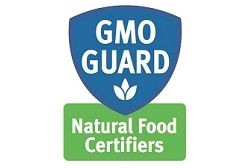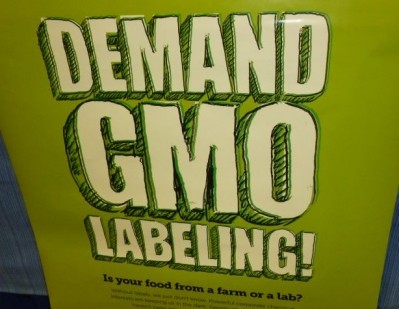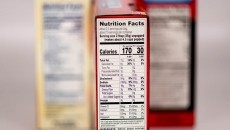The path to Washington passes through the states, GMO labeling advocate says

Steve Hoffman, principal of Compass Natural Marketing in Boulder, CO, has worked as a consultant on the ultimately unsuccessful Prop 37 campaign in California and on the Washington I-522 campaign that is still making its way through the legislative process.
“The way to get to federal labeling, I propose the only way to get there, is through the states. That will add increased pressure on any federal bill,” Hoffman said.
20 years experience on the issue
Hoffman has watched the development of the issue right from the start. He was one of the first employees of New Hope Natural Media, where he was editor of Natural Foods Merchandiser magazine. New Hope also owns the Natural Products Expo West trade show.
“The organic industry has been monitoring this from the beginning. The first field tests were conducted in the mid 80s in Europe with tobacco. In Europe the consumers were actually more concerned and demanded mandatory labeling,” Hoffman told FoodNavigator-USA.
“The first GMOs started coming to market in 1994. They started with the Flavr Savr tomato. They were labeling it in the beginning and nobody was buying the products. So they got FDA to agree that genetically modified crops were ‘substantially equivalent’ to naturally derived crops. Meaning it looks like corn, smells like corn, tastes like corn, it must be corn, so you don’t need to label it,” he said.
GMO crops, most prominently corn and soybeans, have proliferated to the point where more than 90% of corn and 95% of soybeans in some areas of the US are grown from GMO seeds. Farmers aren’t led by rings in their noses, so the fact that the technology has become so ubiquitous means it is conferring some benefits. But are they the right benefits? Hoffman doesn’t think so.
“What we do know is that since the mid 90s, over a course of 13 years, the use of pesticides has increased by up to 400 million pounds as a result of genetically engineered agriculture,” Hoffman said. “There has been no benefit to the consumer. There has been benefit to the limited number of agribusiness companies. Genetically modified agriculture works great if you are doing American style monoculture.”
Unforeseen effects
And Hoffman believes that the technology is dangerous, and was approved without sufficient oversight or evaluation of the potential risks.
“It’s difficult to argue science and science but there is a growing body of science that I believe demonstrates clear and present risks to human and animal health and the environment,” he said. “There is not enough control in this. There are potential unforeseen effects. We’ve got babies born with the Bt insecticide toxin in their bloodstreams, whereas Monsanto assured us that that toxin would never cross over into the food supply."
Pyrrhic victory
Hoffman said the Prop 37 campaign in California, while a tactical defeat for the advocates of GMO labeling, may ultimately be viewed as a strategic victory. It raised the visibility of the issue and forced the anti-labeling camp to come out and declare its true colors, he said.
“I think that the defeat of prop 37 in California really created more awareness of genetically modified organisms,” he said. “I think that it was a Pyrrhic victory for them.”
Hoffman said he also opposes the development of GMO agriculture because of the way it concentrates power over the food supply and food policy into just a few hands.
“The companies that contributed about half of the $46 million that defeated Prop 37—companies like Monsanto, Dow, DuPont, Syngenta and Bayer—these same five companies over the past 20 years have bought up 90% of the independent seed companies.
“These are actually pesticide companies. GMO agriculture is to sell proprietary seed that farmers cannot save. They have to buy new seed every year. And yes, it’s to sell chemicals,” Hoffman said.
Hoffman believes federal legislation will ultimately come to pass. A federal GMO labeling bill introduced by Sen. Barbara Boxer, D-CA and Rep. Peter DeFazio, D-OR, is currently before the Senate Health, Education, Labor & Pensions committee. And seeing such a bill pass would be a crowning achievement in a long career in the natural products business, he said.
“I do believe that this is where I can make an important contribution and leave a legacy. I think that mandatory GMO labeling is fundamental to the right to the consumer’s right to know.”
















